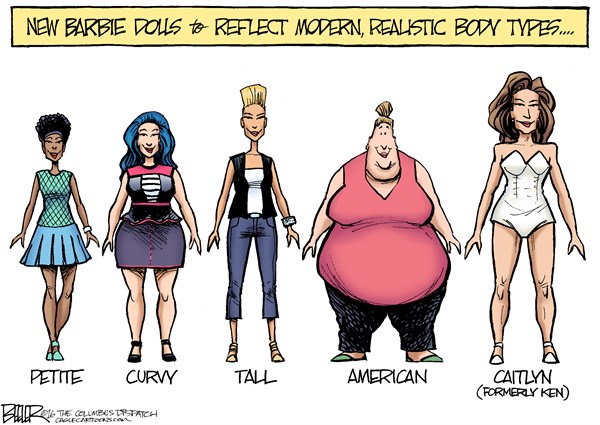Is it true that the vast majority of Muslims are peaceful? What if it’s false?
We often hear it said that the vast majority of Muslims are peaceful and reject violence. That proposition is worth examining because if it’s not true there is cause to worry. Of course, you should be worried already. Even if only a small percentage of the world’s 1.6 billion Muslims are prepared to use violence, that still works out to a large number. However, if the vast-majority thesis doesn’t hold up, you might want to order a Kevlar vest from Amazon, or, if you’re the accommodating type, you could start practicing the Shahada—the Islamic declaration of faith.
There is a good deal of polling data to suggest that the vast majority of Muslims are not just your standard-issue vast majority. For example, Pew polls of public opinion in Pakistan and Egypt show that the vast majority (about 82 percent) favor stoning for adultery, amputation for theft, and death for apostates. So, even if a majority in these countries are not personally inclined to violence, they have no problem with the violent application of sharia law.
But rather than rely on polling data, let’s look at some other ways of assessing the “vast majority” proposition. For some perspective, here are some other “vast majority” propositions that just popped into my head:
Proposition 1. The vast majority of people are peaceful until they’re not.
Proposition 2. The vast majority of people go with the flow.
Proposition 3. The majority of people in any society are women and children.
With the exception of the third proposition, there is no empirical evidence for these propositions, but they seem just as reasonable as the proposition that the vast majority of Muslims are peaceful—a supposition which also has no empirical support. However, Proposition 3 does lend credence to the “vast majority of Muslims” thesis since women and children are, for various reasons, less inclined to violence than adult males. It would therefore be reasonable to say of any society that at least a majority are peaceful.
But people who are peaceful today will not necessarily be peaceful tomorrow. It’s probably safe to say that the vast majority of Hutus were behaving peacefully before the Rwanda genocide of 1994 … and then they stopped behaving peacefully. Using clubs, machetes, and, occasionally, guns, the Hutu managed to kill about 800,000 Tutsi in the space of one hundred days. It’s likely that the vast majority did not take part in the killings, but, by all accounts, a sizeable number did, and an even greater number were complicit. According to reports, most of the Tutsi victims who lived in rural villages were murdered by their neighbors.
So, in line with Proposition 1, the majority of the Hutu were peaceful until they were not. And, in line with Proposition 2, the majority of the Hutu went with the flow—the flow, in this case, being in the direction of mayhem. It should be noted, however, that there were powerful incentives to go with the flow. Moderate Hutus who declined to join in the killing were often killed by their fellow Hutus as a warning to others.
Although women took part in the slaughter, Proposition 3 would suggest that the majority of them did not. And if you combine the women with the children, the elderly, and the moderates, it is reasonable to assume that the majority of Hutu did not participate in the carnage. That, however, would have been small comfort to the Tutsi. The more you think about it, the less comforting it is to know that the vast majority of any population won’t take up arms against you.
History is full of examples of peoples and nations who were peaceful and then were not. Prior to World War I, the vast majority of Europeans were behaving peacefully. Then came 1914, and the European nations went to war with each other. The majority, of course, remained at home and were never involved in battle, but it seems safe to say that most of them fully backed their own side in the conflict and welcomed news of enemy casualties.
Given the right circumstances, the majority of almost any population will willingly put itself on a war footing and turn their homeland into a home front. The questions is, is there something about Islamic cultures that make them more susceptible to warlike attitudes more of the time?
Before attempting an answer, let’s briefly consider another historical example—the Spartans. Were the vast majority of Spartans peaceful? In the sense that the great majority, including women, children, and the elderly were not at war all the time, yes. Still, we would be mistaken to call them a peaceful people. Sparta was a warrior culture, and it cultivated a warrior mentality in its citizens.
The Spartans were a unique case, but in so far as Islam has a tendency, it tends in the direction of Sparta rather than, say, in the direction of Sweden—a land which was once host to a warrior culture of its own. But the Vikings are long gone, and their peaceful descendants look like they will be the first European nation to fall to Islam—a culture which has been more or less at war with the rest of the world since its inception.
Why is the sharia penalty for apostasy death? Because Islam understands itself to be an army. And the penalty for deserting an army in wartime is death. But for Islam, all times are wartimes. The basic division in the Islamic faith is between the House of Islam and the House of War. The essential mission given to Muslims is to bring the House of War (all non-Islamic nations) under the control of the House of Islam.
Like the Spartans, the first Muslims were warriors. Their leader was both a prophet and a warlord. Since Muslims are still expected to model their behavior on Muhammad, it’s not surprising that Muslim cultures will be more prone to violence than, say, cultures that take Jesus or Buddha as their inspiration. Our own culture is completely sold on the importance of having role models to emulate, but hasn’t yet grasped the consequences that follow when 1.6 billion people take Muhammad as their primary role model. Indeed, one of the chief appeals of ISIS and company is their promise to return Islam to those glorious days when Muhammad spread the faith by force.
It may well be that a great many Muslims today just want to be left alone to go about their business. But one of the built-in features of Islam is that, if you’re a Muslim, it won’t leave you alone. It wants to force you to be good. However, the only way to know if you’re good is if you conform to sharia. Thus, where Islam is practiced in its purest form, the virtue police patrol the streets, and everyone understands that if they convert to another religion they can be executed for apostasy—that is to say, desertion.
[AdSense-C]
Life Lessons

2. When in doubt, just take the next small step.
3. Life is too short to waste time hating anyone.
4. Don’t take yourself so seriously. No one else does.
5. Pay off your credit cards every month.
6. You don’t have to win every argument. Agree to disagree.
7. Cry with someone. It’s more healing than crying alone.
8. It’s okay to get angry with God. He can take it.
9. Save for retirement starting with your first paycheck.
10. When it comes to chocolate, resistance is futile.
11. Make peace with your past so it won’t screw up the present.
12. It’s okay to let your children see you cry.
13. Don’t compare your life to others’. You have no idea what their journey is all about.
14. If a relationship has to be a secret, you shouldn’t be in it.
15. Everything can change in the blink of an eye. But don’t worry; God never blinks.
16. Life is too short for long pity parties. Get busy living, or get busy dying.
17. You can get through anything if you stay put in today.
18. A writer writes. If you want to be a writer, write.
19. It’s never too late to have a happy childhood. But the second one is up to you and no one else.
20. When it comes to going after what you love in life, don’t take no for an answer.
21. Burn the candles, use the nice sheets, wear the fancy lingerie. Don’t save it for a special occasion. Today is special.
22. Over-prepare, then go with the flow.
23. Be eccentric now. Don’t wait for old age to wear purple.
24. The most important sex organ is the brain.
25. No one is in charge of your happiness except you.
26. Frame every so-called disaster with these words: “In five years, will this matter?”
27. Always choose life.
28. Forgive everyone everything.
29. What other people think of you is none of your business.
30. Time heals almost everything. Give time time.
31. However good or bad a situation is, it will change.
32. Your job won’t take care of you when you are sick. Your friends will. Stay in touch.
33. Believe in miracles.
34. God loves you because of who God is, not because of anything you did or didn’t do.
35. Whatever doesn’t kill you really does make you stronger.
36. Growing old beats the alternative — dying young.
37. Your children get only one childhood. Make it memorable.
38. Read the Psalms. They cover every human emotion.
39. Get outside every day. Miracles are waiting everywhere.
40. If we all threw our problems in a pile and saw everyone else’s, we’d grab ours back.
41. Don’t audit life. Show up and make the most of it now.
42. Get rid of anything that isn’t useful, beautiful or joyful.
43. All that truly matters in the end is that you loved.
44. Envy is a waste of time. You already have all you need.
45. The best is yet to come.
46. No matter how you feel, get up, dress up and show up.
47. Take a deep breath. It calms the mind.
48. If you don’t ask, you don’t get.
49. Yield.
50. Life isn’t tied with a bow, but it’s still a gift.
Police Codes
Courtesy of Zipscanners.com, here is a detailed info graphic to let you know what Police codes actually mean:



